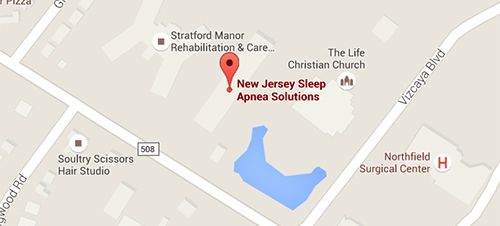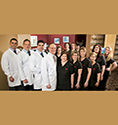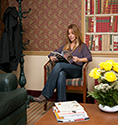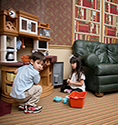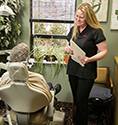Alcohol and Sleep Apnea: What to Know
Submitted by New Jersey Snoring Solutions on Thu 11/25/2021 - 09:00

Let’s put to rest the myth that drinking alcohol can help people fall asleep. Alcohol is a depressant, and while it induces drowsiness, the sleep is usually short-term and of poor quality. Using alcohol to help fall asleep also causes fatigue the following day.
For those with sleep apnea, drinking alcohol before going to bed is not a good practice. It exacerbates the problem. Here Dr. Ivan Stein and Dr. Allan Stein of New Jersey Sleep Apnea Solutions discuss how alcohol consumption affects patients with sleep apnea.
Alcohol and Sleep
Alcohol affects both the length of sleep and how long it takes to fall asleep. The body spends less time in the Rapid Eye Movement (REM) sleep stage. REM sleep is critical for memory and focus. It’s the stage during which dreams take place.
Poor sleep quality affects every aspect of life, including physical, emotional and mental health. For those with sleep apnea, adding alcohol to the mix increases the risk of cardiovascular disease, including heart attack and stroke.
Alcohol Makes Snoring and Sleep Apnea Worse
According to the American Journal of Managed Care (AJMC), alcohol consumption is found to contribute to the lowest oxygen saturation levels among patients at risk for snoring and sleep apnea.
Decrease in Breathing
Alcohol causes breathing to slow. Breathing becomes shallower as the body pushes less for breath. Throat muscles relax, and the result may prove the collapse of the upper airway.
When a patient with sleep apnea drinks alcohol not long before bedtime, they are increasing the risk that their breathing will become disrupted. In a worst-case scenario, this disruption could prove fatal.
Sleep Apnea Risk Factor
Alcohol consumption is a risk factor for sleep apnea. Some patients may find that abstaining from alcohol significantly reduces or even eliminates their snoring and sleep apnea.
Your partner may already be aware of the connection between snoring and drinking alcohol. They may notice that you do not snore much, if at all, when sober, but that, conversely, your snoring increases significantly with alcohol consumption.
Do You Have to Stop Drinking Alcohol?
Anyone prone to sleep apnea should consider abstaining from alcohol. If that is not a possibility, limit alcohol consumption overall and do not drink for several hours before going to bed.
For some, giving up alcohol is easier said than done. Those experiencing issues with alcohol use should seek alcohol treatment counseling to help them stop drinking.
Call or Email Us Today
For more information about alcohol and sleep apnea, or any sleep apnea disorder, please contact the team at New Jersey Sleep Apnea Solutions today.

